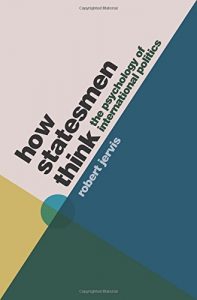

To have a general understanding of Chinese foreign policy, one needs to study its objectives, guiding principles, and strategies. No matter how its foreign policies may change, China considers such “core interests” to be inviolable.

As China becomes more powerful, nationalism will continue to grow when foreign countries, especially those former invaders and colonizers, are perceived to be encroaching on China’s sovereignty, such as supporting independence for Taiwan or Tibet. The Chinese public is constantly reminded that only the Chinese Communist Party (CCP) was able to “save China” and end the “century of humiliation.” Knowing this history helps one understand why the Chinese are obsessed with issues of sovereignty, national unification, and territorial integrity. The PRC considers itself a country whose historical greatness was eclipsed by Western and Japanese imperialist aggressions. The “century of humiliation” has a profound impact on China’s foreign relations. To understand China’s foreign policy in the early 21st century, one needs to know of the so-called century of humiliation in Chinese history-roughly from 1839 to 1949, during which China was humiliated by and suffered from Western and Japanese domination. China follows an independent foreign policy and does not form political or military alliances with other countries. This article first provides an overview and history of China’s foreign relations it then addresses a few important aspects of the foreign policy of the People’s Republic of China (PRC): foreign policy theories, foreign and security policymaking, the role of the People’s Liberation Army (PLA), domestic–foreign policy nexus, soft power, new diplomacy, US-China relations, relations with other major powers, China and Africa, China in other developing areas, and China’s role in global governance.

China will need to boost cooperation with other countries and international institutions to deal with these challenges. In addition to traditional diplomatic challenges, China also needs to give more attention to nontraditional security threats such as infectious diseases, economic crises, terrorism, cyber hacking, piracy, transnational crimes, natural disasters, and environmental degradation. Although its foreign policy has become more sophisticated, China is still learning to become a peaceful, responsible, and respectable great power in the ever-changing world. Understanding China’s foreign policy means fully appreciating these geostrategic conditions. China remains a vulnerable nation surrounded by powerful rivals and potential foes. However, China will be a half-baked “responsible stakeholder” in the 21st century world if it does not help tackle global challenges such as climate change and North Korea. There is good reason to believe that China’s reemergence to great-power status will be peaceful, as it serves China’s fundamental interests. It has also proposed the “Belt and Road Initiative” to enhance connectivity and cooperation in global development. In addition to its roles in existing international institutions, China has played a leadership role in establishing and expanding the Shanghai Cooperation Organization (SCO), setting up the Asian Infrastructure Investment Bank (AIIB) and the BRICS Development Bank. It has also become more active in global governance. China is vigorously projecting soft power and presenting a peaceful image abroad by promoting cultural, educational, sports, tourism, and other exchanges. With continued economic growth China is expected to widen and deepen its global search for energy and other resources and to expand its investment, market, and political clout. To adjust to changing international and domestic conditions, Chinese foreign policy has become more active, pragmatic, and flexible. Since the late 20th century, China has been transforming itself from an isolated and backward agrarian society into a modern economic superpower with global interests and responsibilities.


 0 kommentar(er)
0 kommentar(er)
